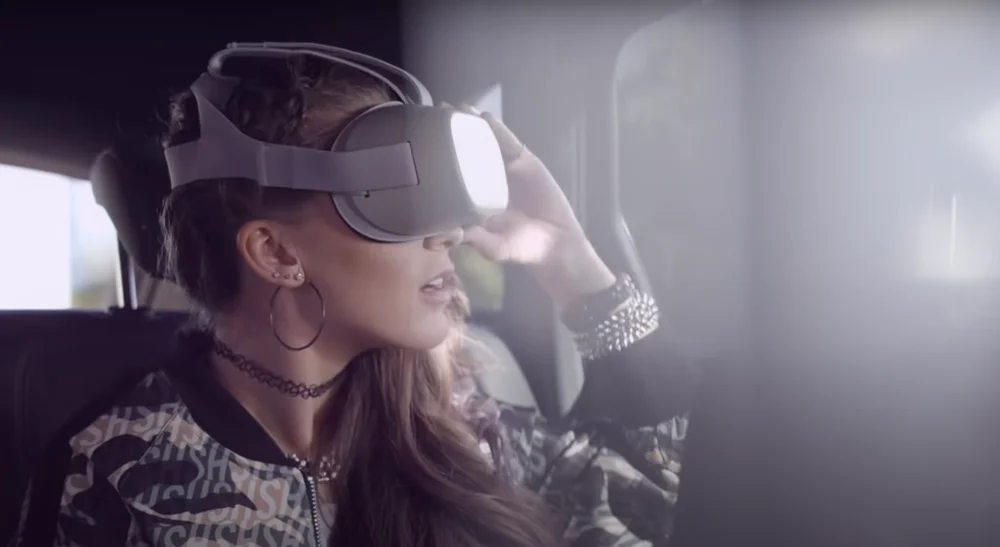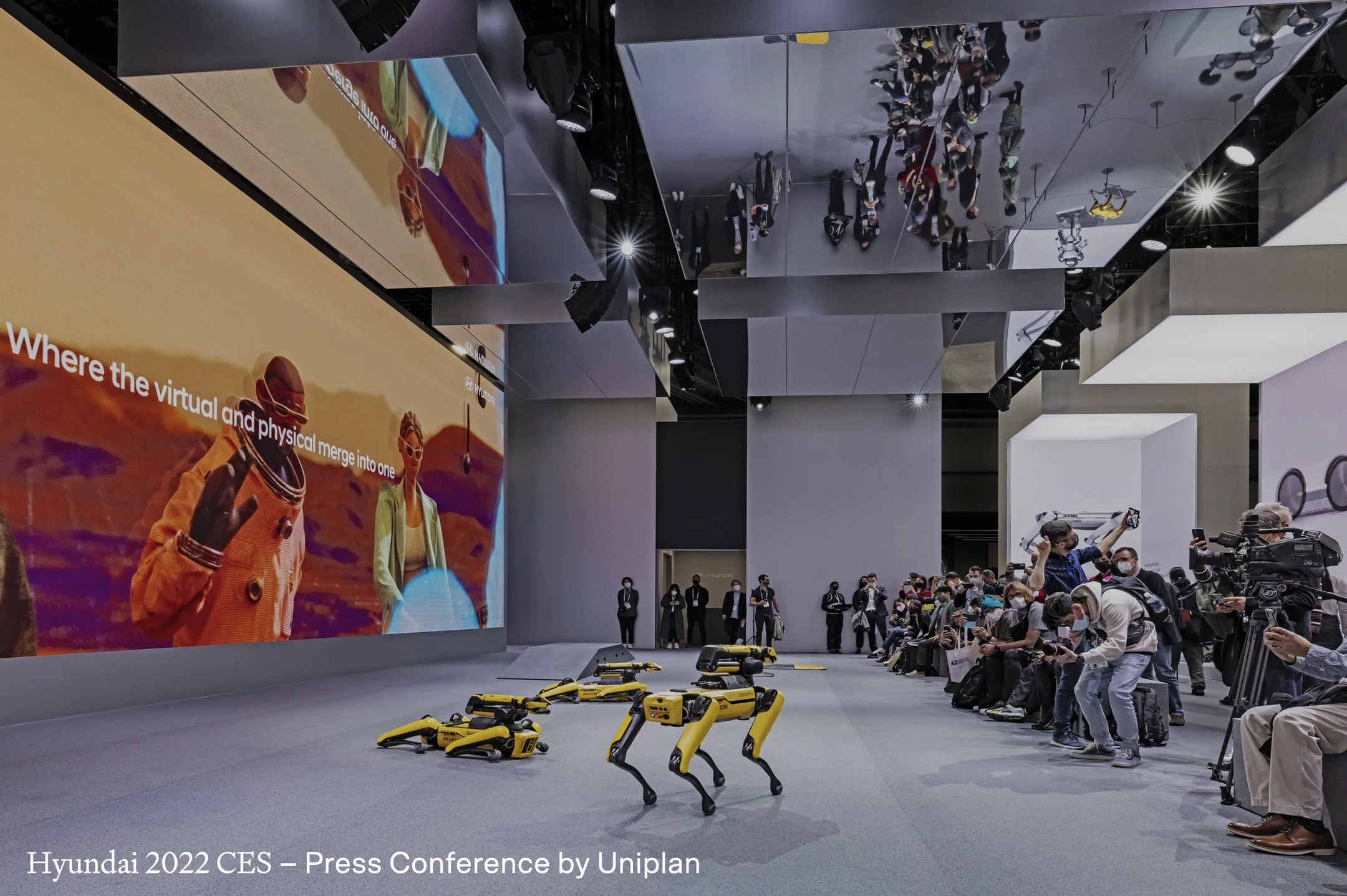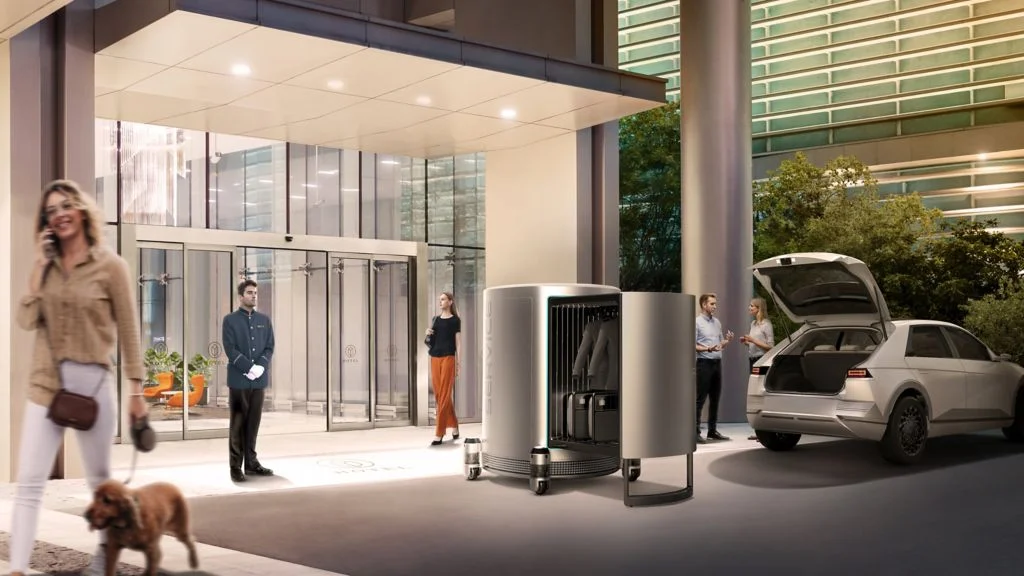In the last year, much has been written about the metaverse and how it’s going to change our lives.
If you have been reading about recent trends in experiential marketing you probably wondered whether live experience is still a thing, and a few broader questions about technology may have crossed your mind. Is technology at the service of humans, or is it already dominating our lives? And how can brands strike the right balance between impressing consumers with innovation and meeting their real-life needs?
In this article, we review some early experimentations by automotive brands in the metaverse, and look for an answer to our core question: is this all entertainment, or can it really change the way we live and experience our cities?
Looking at recent work by key mobility players, we have identified three overall areas of engagement with the metaverse:
Virtual Reality
BMW’s Joytopia and Audi’s Holoride are good examples of how mobility brands use virtual reality to interact with their audiences by adopting it as a form of entertainment. In Audi’s case, the brand connected its Holoride platform to a cryptocurrency ecosystem enabling users to take a more active role in personalizing their experience.
NFTs
When choosing to enter the NFT game, brands have collaborated with artists to create digital artwork to be auctioned online, as in the case of Mercedes-Benz. Alternatively, they have collaborated with gaming platforms to create interactions’ such as Volkswagen’s “Game On” NFT hunt.
Virtual influencers
Another interesting approach has been that of Porsche’s engagement with virtual influencers. The brand has collaborated with Japanese virtual idol Imma who has her own fashion brand and apparently drives a Taycan. Most recently Porsche invested in iMaker, a leading provider of virtual influencers in the Chinese market.
What do all of these works have in common?
We think that branding and consumer engagement are key, especially since brands are increasingly trying to tap into the Gen-Z market. What is still missing is a deeper interaction with the metaverse, in the sense of going beyond virtuality and enabling users to operate real-life tasks digitally and remotely.
Major tech players are struggling with a lack of integration in the metaverse.
While various gaming and entertainment platforms offer their own version of the metaverse, interoperability remains an unsolved question. Key tech players are building walled garden ecosystems, locking down collaborations with gaming and cryptocurrency platforms, and making it difficult for users to migrate their avatars and digital assets from one realm to the next. With users effectively locked inside one or another version of the metaverse, it has been impossible for brands, corporate and public entities to introduce a truly connected experience and a network of services in the metaverse.
Hyundai’s recent work represents a key attempt to bridge virtual experience with physical reality.
After an early collaboration with gaming platform Roblox, where the brand created a series of five virtual spaces for user avatars to digitally interact with its products and technologies, Hyundai started getting deeper into the metaverse by introducing the concept of "Metamobility". So, what does this mean? Let’s have a look.
Rather than simply focusing on providing virtual experiences for branding and entertainment purposes, Hyundai decided to acquire the world’s leading robotics company Boston Dynamics, and use robots as a medium between the metaverse and real environments. This means that users can interact in the virtual world and guide robots to perform tasks in a physical space. For example, an engineer sitting in London could enter the metaverse through an immersive VR platform to visualize a factory in Seoul and guide a robot to accomplish tasks on location, eliminating the need for that engineer to travel to Korea.
In Hyundai’s metamobility vision, robots will become the medium between real and virtual worlds.
Together with artificial intelligence and autonomous driving, robots will play a key part in what the brand calls a Mobility of Things ecosystem. At their 2022 CES press conference, Hyundai showcased their new Plug & Drive and Drive & Lift modular platforms that can be attached to inanimate objects and operated through digital devices. This will be of service to people with limited mobility and also play a role in operating self-driving vehicles.
As Hyundai continues to develop their vision of metamobility, we have learnt that the South Korean government has launched Metaverse Seoul, the most ambitious metaverse project yet launched by any city in the world.
By integrating VR with AI and other technologies, the Seoul Municipal Administration is creating a digital ecosystem whereby citizens will be able to meet officials and get paperwork done in the metaverse. Historic landmarks are also being introduced as virtual tourist zones, and traditional festivals will be held live and in the metaverse so that they may be enjoyed by people around the world. What looks particularly promising is that other leading Korean brands from beyond the field of mobility have also joined in the government efforts to take Seoul into the metaverse, meaning this vision may soon become a reality.
So, back to our original question: can the metaverse really change the way we live and experience our cities?
Here are some of our thoughts:
So far, we cannot talk of an integrated metaverse experience.
We are still looking at a multiplicity of metaverses that are not connected to one another, therefore, it might be a while before we are able to have a full metaverse experience of our cities.
Branding and entertainment still play a key role in mobility brands’ interaction with the metaverse.
While metaverse-related technologies are further developed, there are opportunities for brand experience makers to create attractive campaigns showcasing forward-thinking attitudes and delivering high-quality entertainment.
Connecting the metaverse to the physical world in a way that really impacts how we experience our cities requires the right technology mix.
As seen in Hyundai’s approach to metamobility, effective change in how we experience the city might require the interaction of virtual reality with robotics, artificial intelligence, and autonomous driving.
Success in transitioning to a multiverse-enabled experience of the city will require close cooperation between the corporate and public sectors.
This may be achievable at a higher speed in countries where the corporate sector is tightly interconnected with government, as in the case of South Korea.
Should you be interested in finding out more about how Uniplan are thinking about this and related topics, do get in touch with our editorial team.









